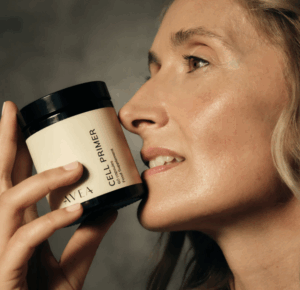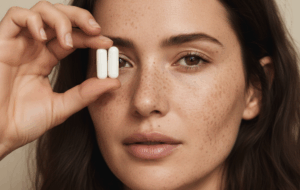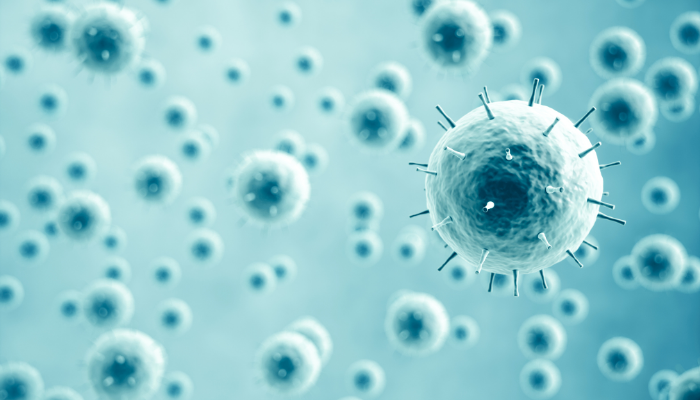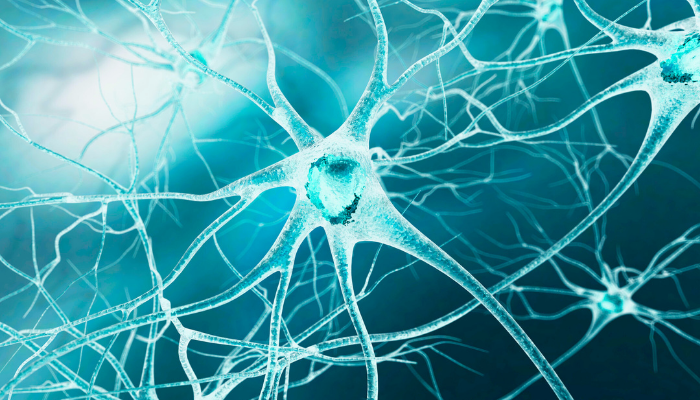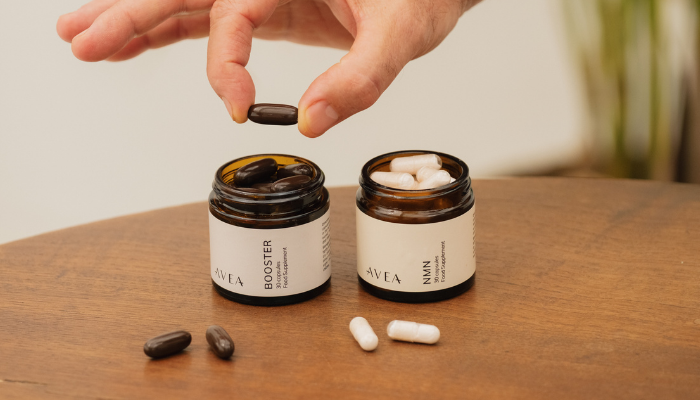Your body is like a garden. Neglect it, skip watering, ignore the weeds, let the soil dry out, and your garden will wither and fade quickly.
But with proper care—regular watering, nourishing the soil, tending to the different plants—your garden thrives and blooms beautifully.
Nourishing your body with the right nutrients is key to slowing down the ageing process.
Vitamins and minerals play some of the most vital roles when it comes to achieving optimal health. Sometimes, even more effectively than regular exercise.
Whilst a well-balanced diet should be your first line of defence, it’s important to acknowledge the global deficiencies in nutrients like Vitamin D, Omega-3, and Magnesium due to modern lifestyles.
Even daily habits can aggravate nutrient imbalances. Intense exercise, dieting, and stress can all deplete essential vitamins and minerals, regardless of your diet.
This Avea article explores the different vitamins and minerals needed for longevity.
By making informed dietary choices and considering supplementation, you can fuel your body and mind, to keep you going well into your 80s and beyond.
In this article
Free guide to reverse your biological age

- Master the science of rejuvenation.
- Apply proven tips to turn back the clock.
- Transform your health with top longevity specialists.
What are longevity and survival proteins?
Your body has various proteins and enzymes, each with different roles. Some are crucial for immediate survival, whilst others are essential for long-term health {{{https://www.ncbi.nlm.nih.gov/pmc/articles/PMC6205492}}}.
Dr. Bruce Ames suggests classifying certain compounds as potential longevity vitamins due to their role in proteins that protect against age-related diseases.
This concept is based on the Triage Theory, which categorises proteins and enzymes into survival proteins and longevity proteins.
- Survival proteins:
- These proteins are essential for short-term survival and reproduction.
- When there is a deficiency in vitamins and minerals, your body prioritises these proteins to ensure immediate survival.
- Longevity proteins:
- These proteins help protect against diseases of ageing, and are crucial for long-term health.
- During vitamins and minerals deficiency, these proteins receive fewer resources because your body prioritises immediate survival.
Why does the difference in longevity v.s. survival proteins matter?
Not all proteins and enzymes in your body are equally affected by a lack of vitamins and minerals. Some need these nutrients more for long-term health, whilst others need them for immediate survival.
Ensuring adequate vitamins and minerals intake throughout life supports both types of proteins, promoting both short-term survival and healthy ageing on the long run.
What are longevity vitamins?
Based on the idea of longevity proteins, we can redefine vitamins:
- Longevity vitamins:
- These dietary compounds are necessary for the function of longevity proteins.
- A shortage of these vitamins can lead to gradual and hidden damage, accelerating ageing over time.
- Categories of vitamins:
- Vitamins supporting both survival and longevity proteins: These vitamins are involved in short-term survival and long-term health. They are subject to the body’s triage system, where they are rationed during shortages.
- Vitamins supporting health without emphasis on early survival: These are not prioritised for short-term survival, but are crucial for preventing accelerated ageing. They may or may not be rationed by the body during shortages.
Essential nutrients for longevity
The triage theory highlights that most vitamins and minerals necessary for the proper function of longevity proteins or enzymes, are also crucial for survival.
Here are key examples:
1. Vitamin D
- Deficiency: Around 70% of the US population has inadequate Vitamin D levels, with dark-skinned individuals in northern regions being particularly deficient.
- Functions: Initially known for preventing rickets, Vitamin D is now recognised for its role in numerous functions in the body. It regulates about 2,700 genes and is vital for preventing diseases like cancer, cardiovascular disease, and diabetes.
- Supplementation: Concerns about toxicity have been debunked by recent studies, showing no increased risk even at high blood levels.
- Importance: Vitamin D supports immune function, reduces inflammation, and enhances mood by influencing serotonin. It helps regulate blood pressure, reduces cancer risk, and enhances cognitive health. It also plays a role in insulin regulation, muscle function, and preventing falls in older adults.
2. Omega-3 fatty acids (DHA/EPA)
- Deficiency: 90% of the population has inadequate intake of Omega-3 fatty acids (DHA and EPA).
- Functions: These fatty acids are crucial for brain and retinal health. They have been linked to reduced mortality rates and slower cell ageing. Studies show their potential in treating mental health conditions and preventing cognitive decline.
- Supplementation: Regular intake of Omega-3s can slow telomere shortening (one of the hallmarks of ageing) and reduce oxidative stress. They also enhance the effectiveness of Vitamin D.
- Importance: DHA and EPA enhance brain health and cognitive function, and reduce inflammation. They lower heart disease risk by improving cholesterol, reducing blood pressure, and preventing plaque build-up in arteries.
3. Magnesium
- Deficiency: Over 95% of the population is Magnesium deficient.
- Functions: Magnesium is essential for DNA repair, reducing cancer risk, and preventing heart disease and stroke. It also helps convert Vitamin D to its active form.
- Supplementation: Addressing Magnesium deficiency can improve overall health and reduce the risk of chronic diseases.
- Importance: Magnesium is crucial for over 300 biochemical reactions in your body. It supports muscle and nerve function, regulates blood pressure, and helps in energy production. It also helps maintain healthy bones, supports immune function, and reduces inflammation.
Boost your vitality with the Essentials
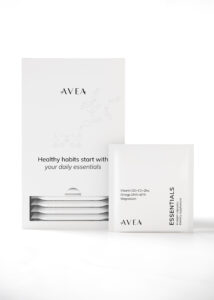
- Address common nutrient deficiencies like Magnesium, Omega-3, and Vitamin D.
- Support immune and overall health.
- Enhance your energy and vitality.
What are ”conditional vitamins”?
The term “conditional vitamins” refers to nutrients that your body can synthesise to some extent, but not in sufficient quantities to meet all physiological needs, particularly under certain conditions or stages of life.
These nutrients are essential for optimal health and longevity, but because the body’s endogenous production is inadequate, they must be obtained from the diet or supplements.
Here are two important examples:
1. Choline
Choline is neither a vitamin nor a mineral; it is an essential nutrient that is often grouped with the B-complex vitamins due to its similar functions and properties.
- Deficiency: Only 11% of women meet the recommended intake of choline, with average intakes being about half to two-thirds of the recommendation.
- Functions: Severe choline deficiency can lead to DNA strand breaks, changes in epigenetic markers, and impaired brain development.
- Importance: Ensuring adequate Choline intake is crucial for maintaining DNA integrity, supporting brain health, and enhancing cognitive function. It helps in neurotransmitter synthesis, supports liver function, and helps reduce inflammation.
2. Taurine (2-Aminoethanesulfonic Acid)
Taurine is a sulfur-containing amino acid that is found in various tissues throughout the body, particularly in the brain, heart, retina, and skeletal muscle.
It is not used to build proteins, unlike most other amino acids, but it plays several critical roles in physiological processes.
- Deficiency: Taurine is synthesised by humans, but not in sufficient amounts, necessitating dietary intake from sources like fish, seafood, seaweed, eggs, and dark-meat poultry.
- Functions: Taurine plays a significant role in preventing cardiovascular diseases (CVD), supporting brain function, managing diabetes, and protecting against mitochondrial diseases.
- Importance:
- Cardiovascular health: Taurine lowers blood pressure, improves vascular function, and reduces the risk of ischaemic heart disease. It also decreases platelet aggregation and serum cholesterol levels.
- Mitochondrial health: It helps in accurate gene reading and energy production. Taurine deficiency can lead to mitochondrial diseases like stroke-like episodes, epilepsy and more.
- Brain health: Taurine supports neuronal proliferation and differentiation, acts as a neuromodulator, and offers neuroprotective effects. It has shown benefits in improving symptoms of psychosis.
- Diabetes management: Taurine helps mitigate diabetic complications such as retinopathy, neuropathy, nephropathy, and cardiopathy. It reduces oxidative stress in diabetic conditions.
- Fetal development: Taurine is crucial for fetal development, as it is provided by the mother and supports organ development and protection against type 2 diabetes.
- Osmolyte function: Taurine regulates cell size, preventing damage from osmotic stress by balancing water movement, ensuring proper cell function.
Ibrahim reverses bioage by 6.5 years with Avea

- Uncover how Ibrahim turned back the clock.
- Learn the secrets of cellular health.
- Start your own age-defying routine today.
What are ”putative longevity vitamins”?
There are several dietary biochemicals not officially recognised as vitamins or as having age-delaying functions, but may have a positive effect on healthy ageing.
These compounds, called ‘’putative longevity vitamins’’ are believed to help reduce long-term oxidative damage and support overall health due to their potent antioxidant and anti-inflammatory properties.
1. Ergothioneine
Ergothioneine is a naturally occurring amino acid, recognised for its exceptional ability to protect cells from oxidative damage and stress.
- Sources: Ergothioneine is found in mushrooms, certain plants, and animal products. High levels are found in oyster and king boletus mushrooms, whilst common white-button mushrooms contain lower levels. Moderate amounts are present in beef, pork, lamb, chicken, oat bran, and beans.
- Functions: Ergothioneine acts as a powerful antioxidant, protecting cells from oxidative damage. It is found in various human tissues, particularly in the brain, bone marrow, eyes, and red blood cells. Its levels decrease with age, and lower levels are associated with cognitive impairment.
- Health benefits: Ergothioneine may help prevent cardiovascular disease, protect injured tissues, and support mitochondrial health. It also plays a role in reducing oxidative damage to proteins, lipids, and DNA.
- Importance: Ergothioneine is considered a potential ‘’longevity vitamin’’ due to its potent antioxidant properties. It helps protect cells against oxidative stress, supports immune function, and reduces inflammation. ESH also helps in maintaining mitochondrial health, and supporting overall cellular function.
2. Pyrroloquinoline Quinone (PQQ)
PQQ is a redox cofactor (coenzyme) and antioxidant, naturally found in the body and various foods.
It plays a crucial role in cellular energy metabolism and mitochondrial function. PQQ stimulates the growth of new mitochondria in ageing cells, enhancing cellular energy production and reducing oxidative damage.
- Sources: PQQ is produced by bacteria and found in fruits and vegetables, with levels significantly higher than those in human tissues. Examples of PQQ-rich foods include kiwi, green peppers, tofu, spinach, and certain fermented foods.
- Functions: PQQ acts as a potent antioxidant and is crucial for mitochondrial efficiency. It supports various health benefits, including diabetes management, neuroprotection, and inflammation reduction.
- Health benefits: PQQ improves mitochondrial function, enhances cognitive abilities, and protects against oxidative stress. It has been shown to support mitochondrial biogenesis (formation of new mitochondria) and energy production.
- Importance: PQQ promotes cellular growth and repair, improves cognitive function, supports heart health, boosts immune function, and reduces inflammation. PQQ also helps in protecting nerve cells and enhancing overall metabolic efficiency.
3. Queuine
- Sources: Queuine is an ancient compound found in bacteria and passed on to plants and animals. It is present in foods like tomatoes, wheat, coconut water, and milk.
- Functions: Queuine is integrated into certain tRNAs in eukaryotes and is essential for proper protein synthesis. It supports the production of important neurotransmitters and other biochemical processes.
- Health benefits: Queuine deficiency can lead to reduced levels of tetrahydrobiopterin (BH4), a cofactor necessary for producing neurotransmitters like serotonin and dopamine. Adequate queuine levels are important for neurological health and may play a role in conditions like autism, ADHD, and schizophrenia.
- Importance: Queuine is essential for neurotransmitter production and overall protein synthesis, supporting brain health and cognitive function. It reduces oxidative stress, protecting cells from damage, and supports cardiovascular health by improving blood vessel function. Queuine also boosts the immune system, enhancing your body’s ability to fight infections, and reduces inflammation, lowering the risk of chronic diseases.
4. Carotenoids
Carotenoids are plant pigments responsible for the vibrant red, yellow, and orange colours seen in many fruits and vegetables.
They act as powerful antioxidants, support eye health, boost the immune system.
Key carotenoids include lutein, zeaxanthin, lycopene, alpha- and beta-carotene, beta-cryptoxanthin, and Astaxanthin.
- Sources: Carotenoids are abundant in carrots, sweet potatoes, and pumpkins, rich in beta-carotene. Tomatoes and red peppers provide lycopene, known for reducing prostate cancer and heart disease risks. Spinach and kale offer lutein and zeaxanthin, crucial for eye health. Mangoes, oranges, and papayas also contain a variety of carotenoids.
- Functions: Carotenoids act as antioxidants, quenching singlet oxygen and protecting cells from oxidative damage. They are crucial for maintaining visual and cognitive health.
- Health benefits: Low intake of carotenoids is associated with increased risk of all-cause mortality, macular degeneration, cognitive decline, cardiovascular diseases, cancer, metabolic syndrome, and other age-related diseases. Some carotenoids, like alpha- and beta-carotene, are precursors to Vitamin A.
- Importance: Carotenoids’ ability to protect against oxidative damage and support long-term health makes them important putative ”longevity vitamins”.
5. Coenzyme Q10 (CoQ10)
CoQ10 is naturally found in every cell of the body, especially in the heart and muscles. CoQ10 levels may decline with age, exercise, medications, or environmental factors.
- Deficiency: CoQ10 deficiency can lead to fatigue and muscle weakness.
- Functions: Also known as Ubiquinol, CoQ10 is essential for cellular energy production, acting as an antioxidant and supporting heart health.
- Supplementation: Regular intake of CoQ10 can improve energy levels, support cardiovascular health, and reduce oxidative stress. It also enhances exercise performance and may help in the management of certain chronic diseases.
The role of vitamins and minerals in ageing
A significant portion of the population, including the poor, children, adolescents, the obese, and the elderly, lack adequate vitamins and minerals due to
- limited access to nutritious foods
- financial constraints
- reliance on processed foods
- poor dietary habits
- chronic health conditions
- reduced appetite in the elderly
- lack of nutritional education
Impact of nutrient deficiencies
- Children and adolescents: Nutrient deficiencies can impair growth, cognitive development, and academic performance.
- The obese: Deficiencies can exacerbate health issues related to obesity, such as cardiovascular disease and diabetes.
- The elderly: Lack of essential nutrients can lead to weakened immune systems, increased susceptibility to infections, and accelerated aging processes.
Besides, the official recommended intake levels might be too low, as they don’t account for the long-term effects of vitamin and mineral shortages.
Eating nutrient-dense foods—those high in vitamins, minerals, fibre, and longevity nutrients—should be a daily priority. Discover the longevity diet – top 10 easy to implement tips.
Foods like nuts, seeds, eggs, seafood, vegetables, and fruits are packed with nutrients that support long-term health. These foods help nourish your body and can slow the ageing process.
Traditional vitamins and minerals for longevity
1. Vitamin C
- Deficiency: Vitamin C deficiency can lead to scurvy, characterised by fatigue, gum disease, and skin problems.
- Functions: Vitamin C is a powerful antioxidant that supports immune function, collagen synthesis, and wound healing. It enhances iron absorption and helps maintain healthy skin. Learn how Vitamin C is good for your skin here.
- Supplementation: Regular intake of Vitamin C can help reduce the duration of colds, improve skin health, and protect against oxidative stress. It also supports cardiovascular health by reducing blood pressure and arterial stiffness.
- Importance: Vitamin C boosts immune function, supports collagen production, enhances iron absorption, and protects against oxidative damage, contributing to overall health and longevity.
2. Vitamin E
- Deficiency: Vitamin E deficiency is rare, but can cause neurological problems due to oxidative damage.
- Functions: Vitamin E is a powerful antioxidant that protects cell membranes from oxidative damage, supports immune function, and prevents inflammation.
- Supplementation: Regular intake of Vitamin E can improve skin health, reduce the risk of chronic diseases, and enhance immune function. It also helps protect against cognitive decline and supports cardiovascular health.
- Importance: Vitamin E protects cells from oxidative damage, supports immune function, and reduces inflammation, contributing to overall health and disease prevention.
3. Vitamin B6 and B12
- Deficiency: Deficiency in B6 can cause anemia, dermatitis, and depression, while B12 deficiency can lead to anemia, neuropathy, and cognitive impairments.
- Functions: Vitamin B6 is crucial for amino acid metabolism, neurotransmitter synthesis, and immune function. Vitamin B12 is essential for red blood cell formation, DNA synthesis, and nerve function.
- Supplementation: Regular intake of B6 can improve mood and cognitive function, whilst B12 supplementation supports energy levels, cognitive health, and red blood cell production.
- Importance: Vitamins B6 and B12 support energy production, cognitive health, and red blood cell formation, contributing to overall well-being and preventing deficiency-related conditions.
4. Zinc
- Deficiency: Zinc deficiency can cause growth retardation, impaired immune function, hair loss, and skin lesions.
- Functions: Zinc is essential for immune function, wound healing, DNA synthesis, and cell division. It also supports taste and smell.
- Supplementation: Regular intake of zinc can enhance immune function, improve wound healing, and support growth and development. It also helps reduce the duration of colds and supports skin health.
- Importance: Zinc supports immune function, wound healing, and DNA synthesis, contributing to overall health and preventing deficiency-related issues.
5. Chromium
- Deficiency: Chromium deficiency is rare, but can impair glucose metabolism and increase the risk of insulin resistance.
- Functions: Chromium enhances insulin action, supporting glucose metabolism and maintaining normal blood sugar levels.
- Supplementation: Regular intake of chromium can improve insulin sensitivity, support healthy blood sugar levels, and reduce the risk of type 2 diabetes. It may also help in weight management.
- Importance: Chromium supports glucose metabolism and insulin action, helping to maintain healthy blood sugar levels and reduce the risk of metabolic disorders.
Importance of essential nutrients beyond traditional vitamins
While traditional vitamins are well-known, other micronutrients and bioactive compounds are equally essential for health.
Many people know about Vitamins like C and D, assuming they are the only crucial nutrients.
But, numerous other vital nutrients, such as Astaxanthin, Taurine, and Ergothioneine, play significant roles in maintaining health and preventing disease.
These lesser-known compounds might not have received the same media attention, but that doesn’t mean they don’t exist, or are not as important.
It’s just that you might not be aware of them. Overlooking these nutrients can lead to gaps in nutrition, overall health, and longevity.
Addressing deficiencies
Nutrient deficiencies can lead to reversible or irreversible damage. For example, a lack of Selenium can cause DNA damage, while a Vitamin K deficiency can lead to loss of chromosomes.
Obese individuals are particularly at risk, as they often have lower levels of essential vitamins and minerals, leading to a higher frequency of age-related diseases like cancer, heart disease, and cognitive decline.
The best longevity supplements
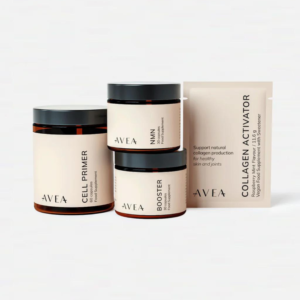
- Consists of PQQ, Ergothioneine, Vitamin C, Astaxanthin, CoQ10, NMN, senolytics, and more.
- Enhances sleep.
- Boosts cellular renewal and energy.
- Enhances collagen production.
- Recommended by biohackers and health experts.
The importance of supplementation
Supplementing with science-proven doses of necessary nutrients can help overcome genetic defects and ageing-related issues.
Avea’s most sophisticated routine, Complete Rejuvenation Routine consists of synergistic ingredients, to comprehensively address the different hallmarks of ageing.
It includes all-star longevity ingredients like PQQ, Selenium, Quercetin, Fisetin, Ergothioneine, Resveratrol, CoQ10, NMN, Astaxanthin, and more.
We develop each Avea product with a premium blend of ingredients, chosen for their potency, bioavailability and purity. Our science-driven formulas ensure synergistic benefits for optimal efficiency.
Longevity supplements can improve the function of enzymes and proteins, supporting better health and reducing the risks of age-related diseases, especially those which arise due to a lack in vitamins, minerals, and other important biochemicals.
Did you know that over 50 genetic diseases in humans can be ameliorated by supplementation?
Keynote from Avea
With life expectancy on the rise, maintaining good health as we age is more important than ever.
Research suggests that a shortage of vitamins and minerals can lead to the build-up of damage and diseases associated with ageing.
By ensuring you get enough of certain essential nutrients, plus additional compounds like ”conditional” and ”putative longevity” vitamins, you can support your metabolism and promote long-term health.


